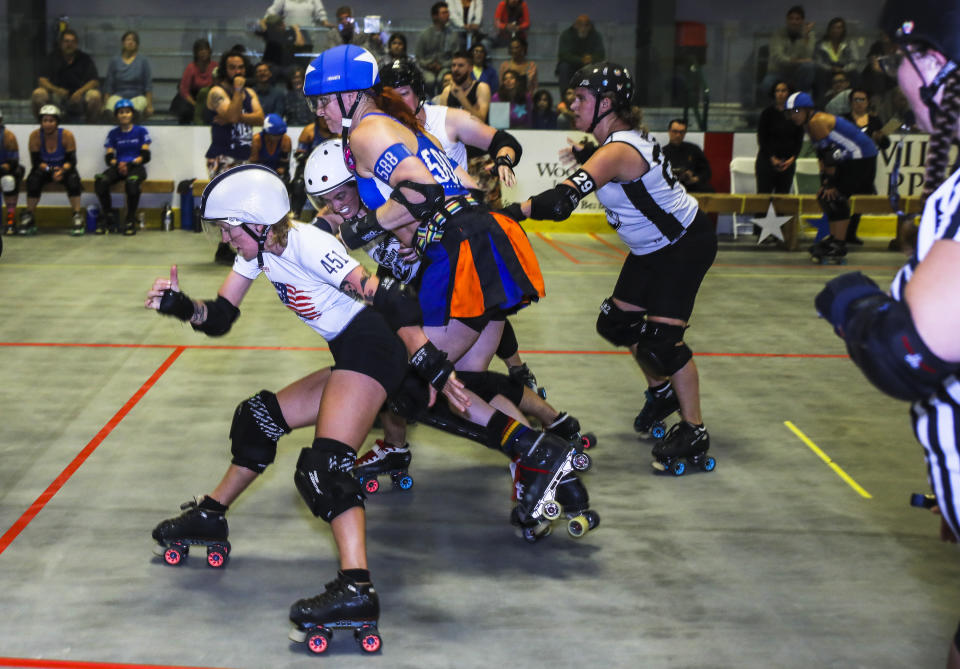Women's roller derby has the best COVID-19 plan in sports, and it's not close
Nearly every sport is struggling to resume operations while COVID-19 continues to massively spike around the country. As they isolate athletes who have tested positive and pray that it won’t spread like wildfire, there is one sport that has everything under control.
The Women’s Flat Track Derby Association (WFTDA), the international governing body for roller derby, has created a comprehensive, science-based COVID-19 plan that focuses on keeping every single athlete, official and fan safe. And it blows every other plan in sports completely out of the water.
The plan
The WFTDA’s plan, which was highlighted in a Wired article published on Thursday, is intense. They’ve created a seven-step return-to-derby ladder of data-based benchmarks that must be met before any derby league can move to the next step.
No league can even start on the return-to-derby ladder until their local government has met baseline conditions: all stay-at-home orders must be lifted, gatherings of up to 50 people must be allowed and their area cannot have more than five positive cases per 10,000 people over 14 days.
Once those conditions are met, a league can move on to non-contact practices done in small groups with masks and gloves, then add low-contact drills and then add full contact practices and scrimmages before moving to inter-league gameplay within the region. If a region sees a spike in positives or new stay-at-home orders are instituted, the league comes off the ladder and starts over again.

The endgame of these well-thought steps is the eventual return to full-scale events with spectators, but the WFTDA doesn’t want to rush it. They laid down a firm policy on welcoming audiences back, which they don’t feel should be done until there are scientific and ethical solutions for the coronavirus. Nothing is worth putting their fans and athletes at risk.
While we agree that some leagues may be ready to attempt a return, exposing non-participants to potential risk of infection for the benefit of our sport is not acceptable. Until there are tangible interventions, including vaccines, meaningful therapeutics, widespread testing of cases and/or antibodies, community immunity, or other factors making audiences ethically viable, we do not recommend your league welcome in-person audiences at this time.
Experts weigh in
A number of experts love the plan, telling Wired that it’s the best of its kind. More than 700 people and organizations have reached out to the WFTDA for copies of its plan. Zachary Binney, an epidemiologist at Emory University, told Wired that the section about spectator attendance was so good that it “almost made me cry.”
“Leave it to a women's sports organization to put together a quite reasonable return plan,” Binney said.
The adoration is warranted. The plan was created by more than two dozen experts who are also derby athletes, including Mikaela Kosich, a biostatistician whose derby name is Bubble Wrath, Nikki McCorristin, an infection control nurse who goes by Trauma, and Bobbiejean Garcia, an epidemiologist who goes by BG Smack.
Erica Vanstone, the executive director of the WFTDA, summed up why their sport feels it’s their duty to take COVID-19 seriously.
“Roller derby is very much about equity and creating a safe and welcoming environment,” Vanstone says. “It’s not worth putting people at risk just so folks can hit each other on rollerskates.” Kosich says that roller derby leagues “see ourselves as members of our communities, not separate from our communities.”
More from Yahoo Sports:

 Yahoo Finance
Yahoo Finance 